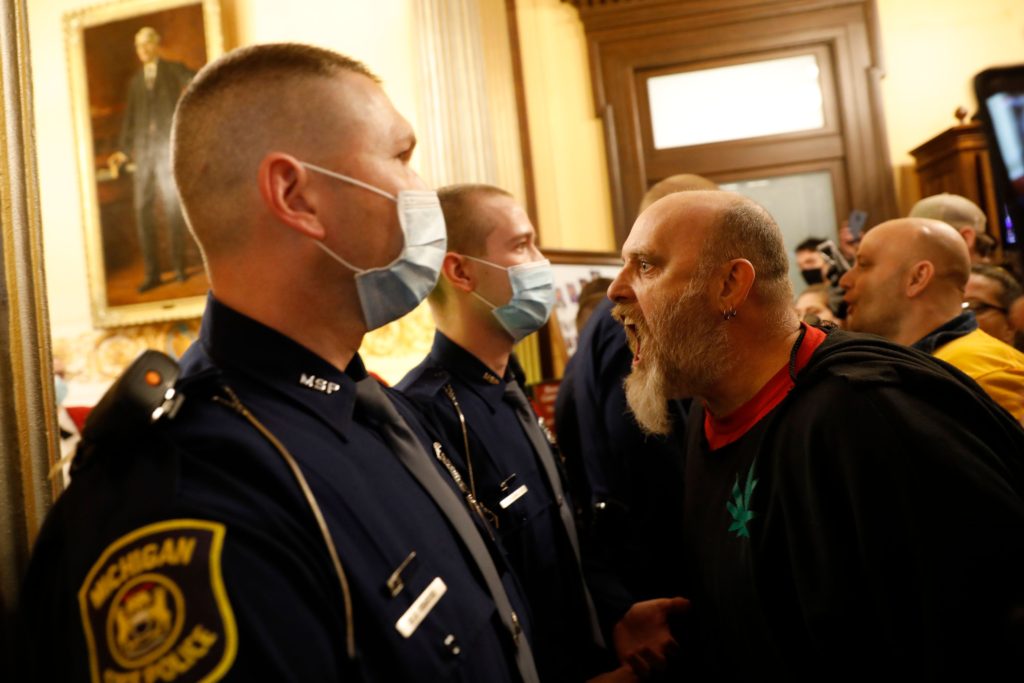
Thursday
With some trepidation, I went to “Beauty by Tabitha” for the first time in months on Tuesday but was reassured when I saw everyone wearing masks (as was I) and gloves. I thought about Oscar Wilde’s reflections upon masks as Courtney cut my hair.
Wilde’s two most famous comments on the subject are “A mask tells us more than a face” and “Man is least himself when he talks in his own person. Give him a mask, and he will tell you the truth.”
As an Irishman in England and a homosexual to boot, Wilde understood masks in a deep way. Works like Importance of Being Earnest and Picture of Dorian Gray are all about masking.
I acknowledge that Wilde has in mind masks designed to conceal identity rather than masks designed to protect against contagion. I’m also struck by how, with the internet, Wilde’s witty observation has become a commonplace fact: on a daily basis millions of people, masked by internet identities, engage in hate speech that they would never reveal if their identities were known.
Or is this still true? It appears that our president, who talks without a filter, is empowering certain of his followers to vent publicly what they used to say only privately. Some of this speech is directed at people wearing masks.
I have in mind those lock-down protesters outside a Honeywell plant (which Trump was visiting to commend them for making masks) shouting at a masked reporter, “You’re on the wrong side of history. … You’re on the wrong side of patriotism — you’re like communists.”
Wilde lived and wrote in Victorian England, where a high degree of social conformity meant that people censored themselves constantly for fear of being shamed. Take away this shame, apparently, and people will tell you their inner truth without a mask. It makes one long for an age of self-repression.
That being said, masks in the age of the coronavirus still tell us things that faces do not. When I see a person wearing a mask, I see someone who is socially responsible and cares about other people. After all, the mask is more for others than for oneself, given that Covid droplets can still enter by the eyes.
On the other hand, when the maskless see me wearing a mask, some undoubtedly see a weenie and a sheeple who feels superior and is probably a Democrat to boot (if not an unpatriotic communist).
So in this instance, a mask really does tell us more than a face. Just not in the way that Wilde envisioned.

